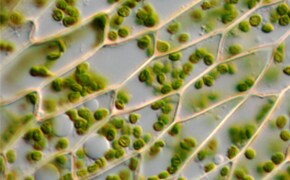AccueilApplicationsDomaines de recherche et thérapeutiquesRecherche en biologie cellulaire et développementale
Recherche en biologie cellulaire et développementale

Puisant ses racines dans la physiologie et la biochimie, la biologie cellulaire et développementale est une approche interdisciplinaire de la compréhension de la dynamique intracellulaire et extracellulaire. Selon le domaine d'intérêt, les recherches portent sur la signalisation cellulaire, l'adhésion et la migration des cellules, la mort et la survie cellulaires, la régulation épigénétique, la croissance et la division des cellules, et le trafic membranaire.
Articles techniques apparentés
- Improper solubilization can potentially result in loss of the peptide/protein and result in failure of the experiment.
- To prevent or minimize peptide degradation we recommend storing the peptide in lyophilized form at –20 °C or –80 °C. Once in solution, the peptide/protein should be stored frozen in individual aliquots to avoid freeze-thaw cycles. Also, prolonged exposure to pH>8 should be avoided, and solutions should be chilled. Finally, prolonged exposure of lyophilized peptides and solutions (especially at high pH) to atmospheric oxygen should be minimized.
- Handling and Storage Guidelines for Peptides and Proteins
- n proliferating cells, the cell cycle consists of four phases. Gap 1 (G1) is the interval between mitosis and DNA replication that is characterized by cell growth. Replication of DNA occurs during the synthesis (S) phase, which is followed by a second gap phase (G2) during which growth and preparation for cell division occurs. Together, these three stages comprise the interphase phase of the cell cycle. Interphase is followed by the mitotic (M) phase.
- We deliver the broadest selection available of carcinogenic and chemopreventive biochemicals, as well as research reagents and kits for apoptosis, angiogenesis, biomarker identification, metabolomics, and functional genomics.
- Afficher tout (23)
Connectez-vous pour continuer
Pour continuer à lire, veuillez vous connecter à votre compte ou en créer un.
Vous n'avez pas de compte ?